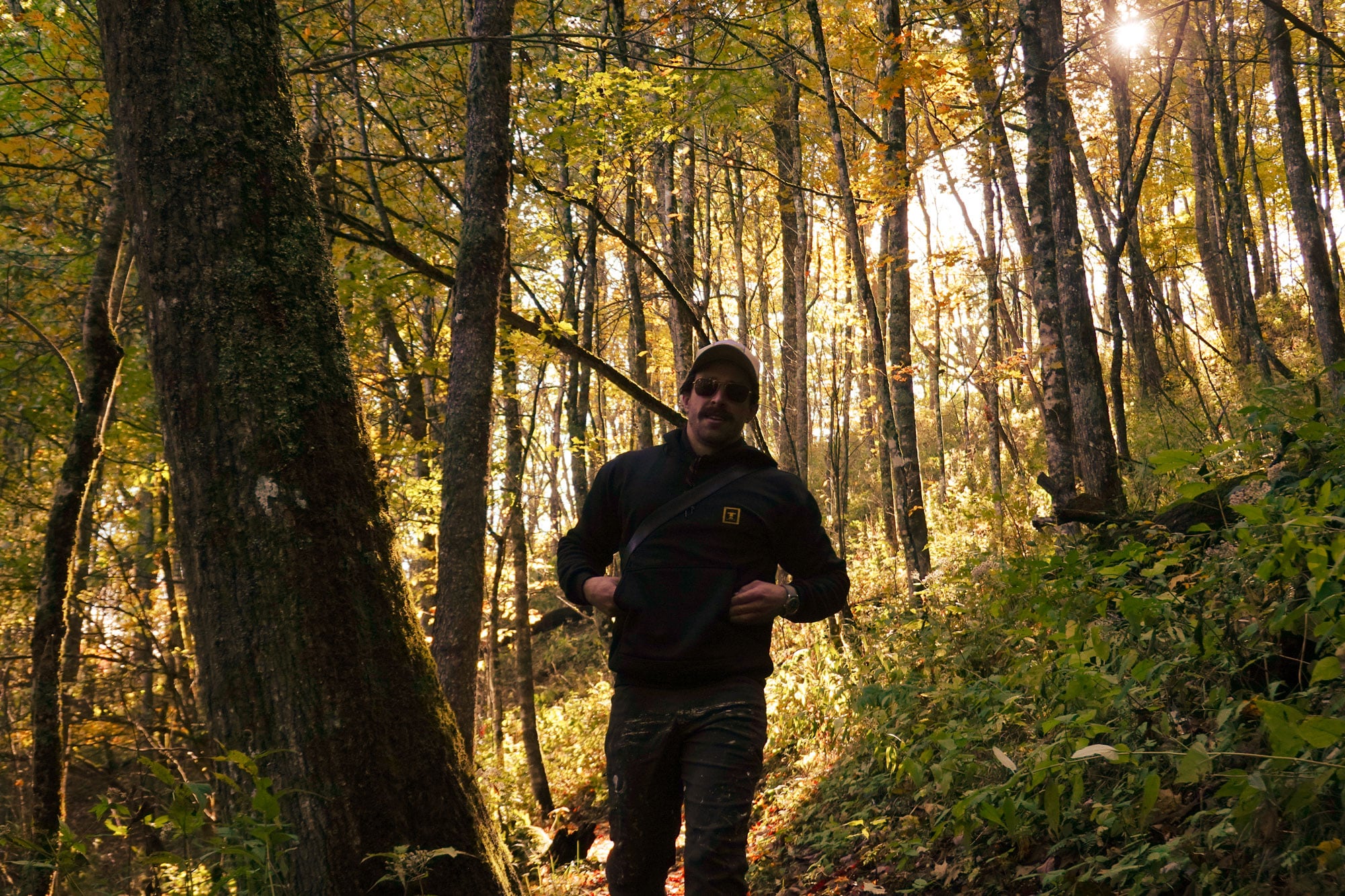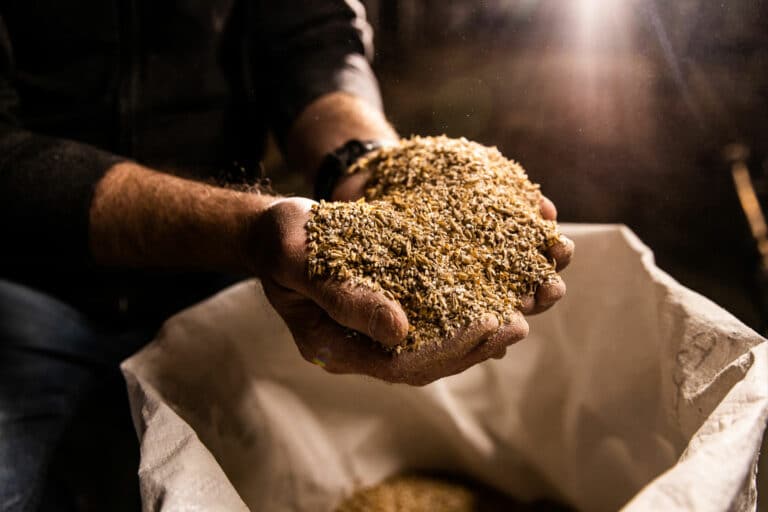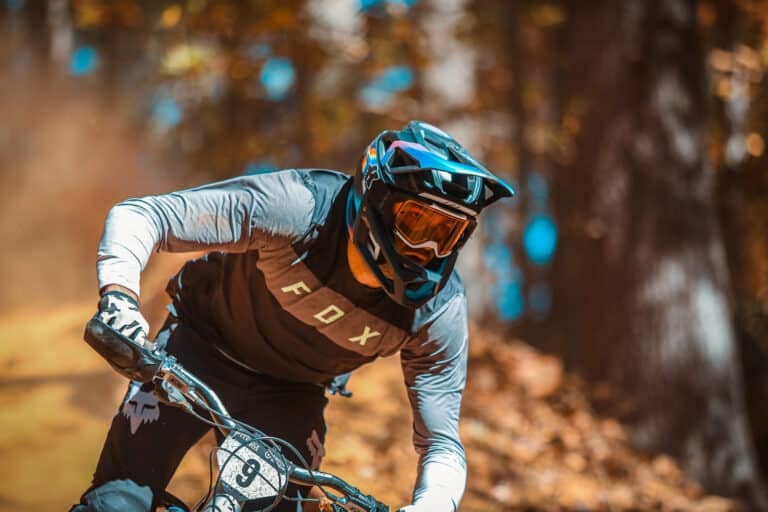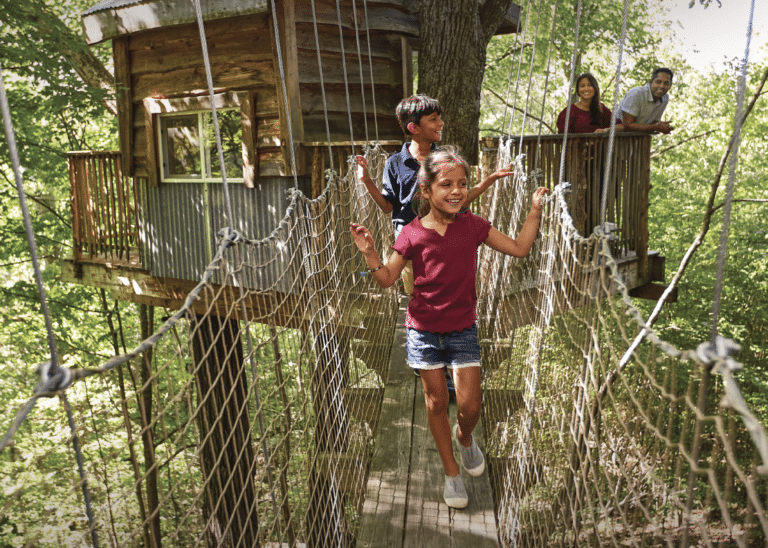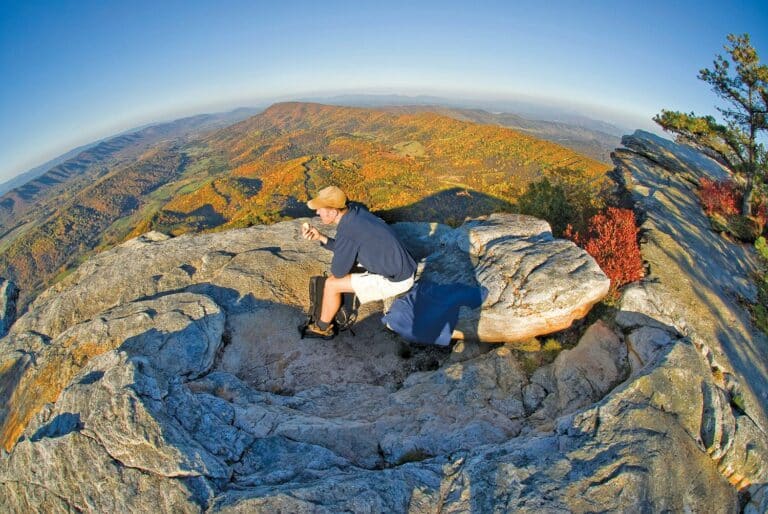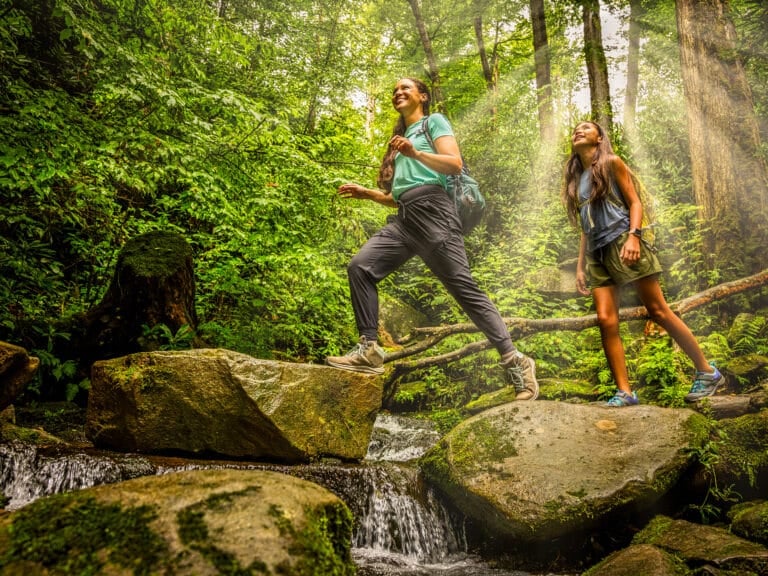A reunion between A.T. thru-hikers puts a Virginia singer-songwriter’s struggles into focus
The first time I met Will Overman, he was swaying in the back of a musty bus with a dozen other people, one protective hand resting on a smallish guitar wrapped in a homemade case. He was, as everyone on the bus was, on his way to begin a thru-hike of the Appalachian Trail.
A few days later, I met Overman again. I stumbled out of the Maine woods to find him hunched over his guitar, picking out the opening notes of a song while the mingled odors of trail life—woodsmoke, noodles, and honest human funk layered over the green, spruce-needle scent of the forest—wafted around a campsite.
“Here we go,” I thought with the misguided snarkiness only a 26-year-old can muster on command. “Jack Johnson. Dispatch. ‘Hey There, Delilah,’ by the Plain White T’s as a follow-up. Especially if any ladies walk by.”
But when Overman opened his mouth, what issued forth was a soulful, shockingly rich rendering of a song I didn’t recognize—because Overman had written it himself.
The song wasn’t perfect, but it was powerful. The work of a young artist searching for his way. Everybody in camp stopped to listen while the trees creaked in the wind overhead.
“This kid,” I amended to myself with a dash of chagrin, “is going places.”
Twelve years later, after recently turning 30, on the other side of a divorce, occasionally in therapy, with a freshly dropped live album and a new studio EP in the works, Overman’s certainly going places—but he’s doing it the hard way. His new single, “Virginia is for Lovers,” is a radio-ready earworm that earnestly captures the affection and frustration someone can simultaneously feel for their longtime home.
It’s an era where it’s never been easier for an artist to gain a following from his living room (or the woods near his house, as the inescapable Oliver Anthony recently made clear). But Will Overman doesn’t roll that way. A grudging and reluctant user of social media, he spends the bulk of his nights gigging and the bulk of his days driving to gigs.
So going places—literally—is half his job description, even if those places tend to be smallish venues scattered from Columbus to Virginia Beach, western North Carolina to southern Maine. And if the other half of his job is TikToking and Instagraming, well, that’s one of many prices to be paid in 2024.
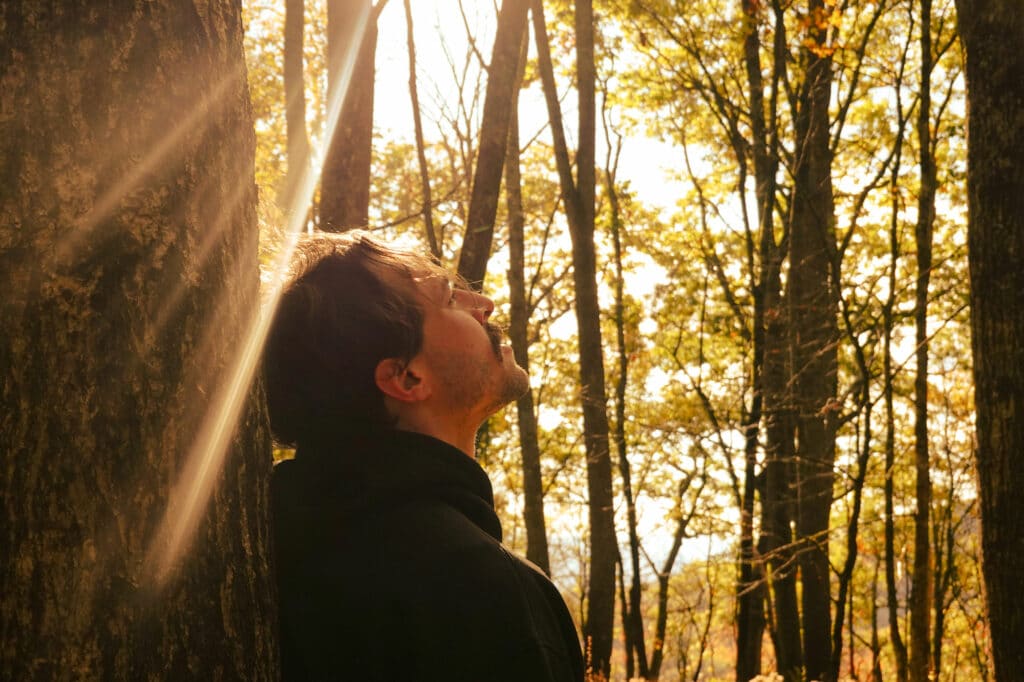
***
“Um, where should I grab to shut this door?” I ask Overman from his van’s passenger seat. The handle is missing, as is much of what one might call “the door itself.” The van’s name is Kacey, in honor of Kacey Musgraves. It’s big and green and smells like multiple dudes call it home, because they do. Overman has stopped mid-tour at my cabin on the fringes of Great Smoky Mountains National Park to chat and take a hike in the woods we last visited together over a decade ago.
“Oh, just. Here,” he says, indicating a flimsy lip of plastic where the door assembly meets the window. I hesitate, worried that a hefty pull will rip the thing off its hinges and bring Overman’s burgeoning career, which he’s advancing inch by inch almost entirely by exhaustive touring in Kacey, along with it.
But our luck holds and the door shuts, however tenuously. Overman slams Kacey into gear. But before we hit the trail, the old Southern gustatory gods must be appeased.
We stop for biscuits, gravy, country ham, and grits at a breakfast joint straight out of Overman’s oeuvre. It’s Appalachian, intimate, and nameless other than a painted window promising fried chicken. Overman slides into the booth across from me, rocking a black hoodie, a shock of dark hair, and a mustache that hovers somewhere between rural tow-truck operator and Brooklyn-based graphic designer.
The warm air is redolent with notes of black coffee and hot grease. It’s the perfect spot to talk about songwriting.
Overman’s music to date is highly autobiographical and story-based, but also deeply rooted in place. It evokes misty American highways, dingy, ill-lit bars, and crumbling buzzard-filled farmhouses. Rolling fields with mountains rising above, a single fence snaking over the rises. He loves his home state of Virginia with a fierce devotion bordering on the religious.
And how to classify Overman’s style? It’s been a struggle.
“Appalachian John Mayer is what we’ve settled on,” Overman tells me over a rapidly shrinking plate of gravy-soaked biscuits. I start to chuckle until he flashes a rueful smile at the description, and the 60-something waitress walking by with a stack of dirty dishes does a double take.
Okay, Appalachian John Mayer it is.
But backroads and women are the subject of a thousand Americana songs. It’s that voice—a voice now enriched by time and experience and Overman’s turbulent twenties—that sets him apart. That and his way around song construction. Overman’s specialty as a writer is wedging poetry into typical Americana and alt-country subject matter, then topping the whole thing off with tried-and-true songcraft sharpened by a brief stint writing production music for NBC promos.
“Catchy chorus, verse, catchy chorus, bridge, near out,” Overman says. “I like writing catchy songs. I’m not afraid of it. I love Tom Petty because [he] just gives you what you want. If it works, it works.”
***
One thing that didn’t work was Overman’s marriage. Dissolving it was his choice. She kept the dog, he left with serious doubts about the viability of long-term romantic relationships. This matters because the vast bulk of Overman’s songs prior to that moment were about his girlfriend, later his wife. One of Overman’s recent albums, The Winemaker’s Daughter, is entirely about her—or about Overman in relationship to her.
So how does a man who’s been writing about the same person for so long move on? The same way everybody does. One shuffling step at a time, eyes locked firmly on the horizon. One thing thru-hiking the Appalachian Trail teaches you, it’s exactly that kind of bullheaded perseverance.
“I promised myself I wouldn’t write a divorce album,” he tells me as we crunch through the thick layer of burnt umber leaves that litter the forest floor.
Another thing thru-hiking teaches, your problems don’t go away just because you walk 2,000 miles. Eventually, you have to deal with them, albeit usually skinnier by 30 pounds or so. And so despite Overman’s wishes, he did make a divorce album. And a post-pandemic album, an “I’m in my early thirties album,” and an “I live on the road” album.
The new songs have a bite. They’re a little grimy, a little gritty. Crafted not in the quaint, sun-drenched Virginia farmhouse setting of Overman’s married years but in the gas stations, green rooms, and country grocery stores of his most recent half-decade—years he calls the hardest of his life.
Nobody except 18-year-olds or the very naive think talent and hard work equals inevitable success. Overman was both back in those Maine woods. And he’ll admit it.
But the road-weary man hiking with me through the park is neither. And he knows further success isn’t guaranteed, no matter how many miles he racks up on Kacey’s odometer. I ask him what percentage of “making it” is down to blind stinking luck.
“A pretty large percentage,” he answers.
“More than half?” I ask.
There’s a long pause.
“I’d like to say that I have enough hope and optimism to believe that it’s less than half,” he hedges.
“You’d like to believe, or you do believe?”
A second, longer pause.
“I don’t believe it’s more than half. But it’s damn near close,” he finally says.
There’s something uniquely difficult about the liminal space Overman currently inhabits, trapped between complete anonymity and widespread recognition. Just a fraction more success and he could breathe, with no further need to supplement his meager musician income with dishwashing jobs between tour legs. A fraction less and he could go do something else—something easier—with a clean conscience, knowing he gave it his all.
But for now, he’s stuck squarely in the middle. For what it’s worth, it’s a better place than most aspiring musicians ever reach. After all, Overman has a per diem to buy his biscuits and gravy, and how many singers out there on the road can claim that?
All photos by the author.
